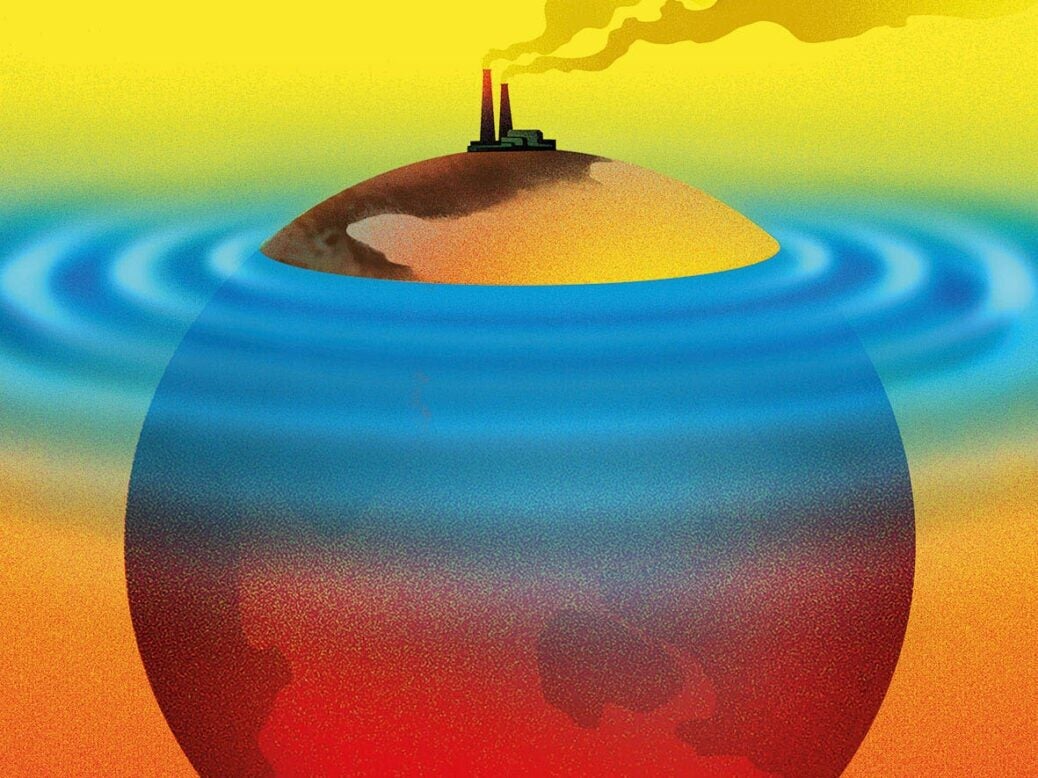
Twelve months on from Cop26 in Glasgow, the world is gathered again, at Cop27 in the Egyptian resort of Sharm el-Sheikh, to try top agree action on climate change. However, the circumstances facing policymakers and the public are very different from a year ago. The steep rise in the price of oil and gas because of post-pandemic supply constraints and the Russian invasion of Ukraine has made formulating an effective energy policy that is consistent with targets for net-zero greenhouse gas emissions more urgent, but also more difficult.
Price rises have, of course, increased the incentive to seek alternative sources of supply that are both cheaper and more secure. Renewables and nuclear power both potentially fit that bill. Another possible – and perhaps more immediate – answer is to exploit domestic sources of fossil fuel that might otherwise have been left alone. Indeed, under Liz Truss the UK government toyed with allowing the fracking of shale gas, while her successor as Prime Minister, Rishi Sunak, has expressed support for licensing the further exploration of North Sea oil and gas reserves. Meanwhile, in an apparent defence of “England’s green and pleasant land”, the government remains opposed to building onshore wind turbines and Sunak, like his predecessor, is distinctly unenthusiastic about solar panels on farmland.
However, perhaps the biggest risk to the pursuit of net zero posed by the rise in energy prices is that, as part of the wider cost-of-living crisis, it has undermined public support for policies designed to reduce carbon emissions. Voters who cannot afford to heat their homes and are struggling to feed their families may feel the threat of climate change is more of a dim and distant prospect than their daily struggle to make ends meet. Indeed, despite its wish to reduce the size of the state, even Truss’s government found itself acquiescing to public and parliamentary pressure to increase the taxpayer subsidy of gas and electricity consumption.
Not that there is much evidence of a decline in the level of public concern about climate change. Ever since 2005 the polling company Ipsos has occasionally asked people how concerned they are about climate change. In the most recent reading in July, 84 per cent said they were concerned, only marginally below the 85 per cent who expressed that view a year ago. True, that reading was taken shortly after the first of last summer’s heatwaves, but equally a regular tracker survey conducted by Kantar for the Department for Business, Energy and Industrial Strategy a little earlier in the summer found that 83 per cent were concerned about climate change, again only marginally down on the 85 per cent who were of that view in the same survey just before Cop26.
Nevertheless, there are signs that tackling climate change has fallen down the list of voters’ priorities. According to Ipsos’ monthly measure of what voters regard as the most important issues facing Britain today, only 14 per cent now mention the environment and climate change, down from 24 per cent a year ago. The state of the economy now dominates voters’ concerns. Throughout the last year YouGov has regularly asked people whether they thought “spending on preventing the impact of climate change is a priority now and should be significantly increased, even if it means cuts are needed elsewhere” or whether, instead, they took the view that “right now there are more urgent priorities than climate change and we need to focus on these areas above spending on climate change”. A year ago rather more (43 per cent) backed the former view than did the latter (34 per cent). However, in their most recent poll on the subject, more (40 per cent) said that there were more urgent priorities than climate change than reckoned that climate change was a top priority (34 per cent). Despite the storms of last February and the heatwaves of the summer, the issue now looks a little less pressing to many voters.
There are also signs that voters have become more inclined to contemplate the exploitation of sources of energy to which they were previously opposed. Now, according to YouGov data from September, 48 per cent support the use of nuclear power generation, while 31 per cent are opposed. In contrast in the summer of 2021, the balance of opinion was tilted in the opposite direction, by 42 per cent to 38 per cent. Similarly, although still relatively unpopular, YouGov’s polling showed support for shale gas extraction had increased from 17 per cent in June 2021 to 28 per cent. In an era when energy is in short supply, voters have seemingly become less inclined to be selective in their attitudes towards where it should be sourced.
Meanwhile, we should bear in mind that climate change is potentially a source of division between the political parties. Even though they were already less likely to regard spending on climate change as a priority, the fall in support for that view has been much sharper (from 30 per cent to 19 per cent) among those who backed the Conservatives in 2019 than it has been among those who voted Labour (from 56 per cent to 52 per cent). Conservative supporters are also more inclined than their Labour counterparts to back both nuclear power (by 61 per cent to 23 per cent) and fracking (by 46 per cent to 30 per cent). In an era in which energy has become much more of a scarce resource and voters are looking for quick solutions, the issue has not only become more difficult to address, but also has the potential to become an important dividing line in our politics.
[See also: Away from Cop27, Big Oil is dramatically expanding]


